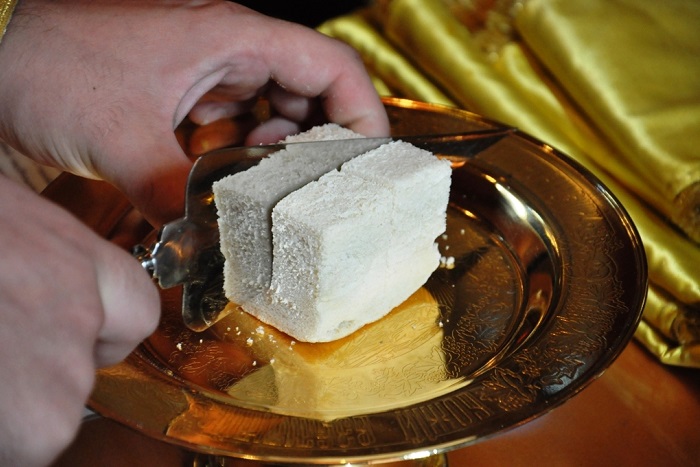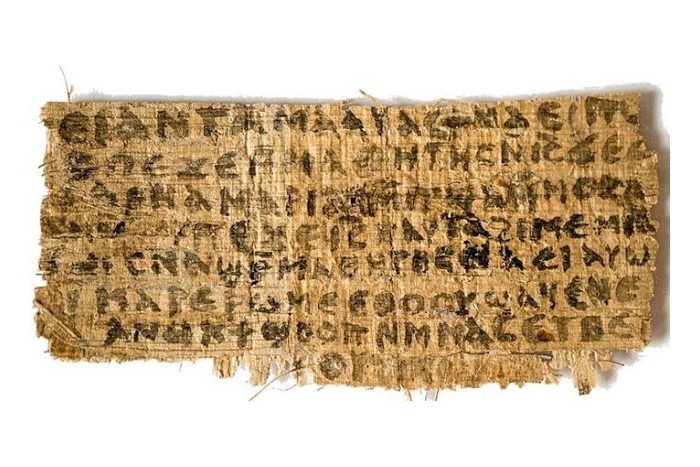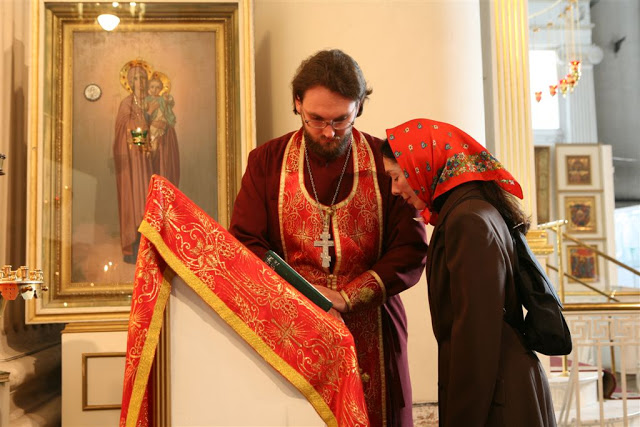
At the beginning of September, we celebrate Labor Day. From the earliest days of the Church, work has always occupied a central place in the life of the Christian. St. Clement of Alexandria, writing in the early years of the third century, reminded new converts that there was no need for them to abandon their occupations. “Practice farming, we say, if you are a farmer; but while you till your fields, know God. Sail the seas, if you are devoted to navigation, but meanwhile call on the Heavenly Pilot.” (from The Exhortaton to the Heathen)
For St. Clement, ordinary work is directly connected to the spiritual realities of the faith. While one does the task, one ought to realize that it has been given by God and is a means of coming to know Him. Work speaks of God and His continuing creative action in the world. St. Augustine reminds us that “the gifts of God’s creation come forth in a joyful and abundant harvest with the help of man’s effort.” (from The Literal Meaning of Genesis)
There is, however, a flip side to work, and from the Orthodox Christian perspective it is known as “holy rest.” This rest is enshrined in the practice and observance of the Sabbath, The Lord’s Day (Κυριακή). Our society has virtually erased the distinction between Sunday and the other six days of the week. With a vested interest in increased commerce and with a bow to the specter of secular influences that seem to expunge anything sacred from the public arena, Sunday has become practically indistinguishable from other days—except that we may “go to church.”
This idea is foreign to Orthodox spiritual living despite the fact that even many Orthodox believers fall in step with siren call of the secular—we give in, we collapse, we resist walking to a different faith agenda. Ironically, Labor Day is a propitious time to re-dedicate ourselves to living the Sabbath, from dawn to dusk, by remembering the fact that our relationship with God did not begin with what we have done; it is not sustained by what we do, and it is not guaranteed to the end by our effort or work. We are redeemed, from beginning to end, by the saving love of Jesus the Christ, of God whose selfless death and rising from the dead become our Sabbath song.
In Genesis 2: 2-3 we read that after the creation of the heavens and the earth, “God rested on the seventh day from all His work which He had done. Then God blessed the seventh day and sanctified it, because in it He rested from all His work which He created and made.”
It is interesting that of everything He created, God chose to bless the seventh day of rest, first—before all else. It wasn’t a matter of God being “exhausted.” On the seventh day he stopped and hallowed time, he consecrated it and set it apart forever so that we too might not only see space as holy. We might also realize that the passing of the span of our life tells us of the permanence of the Divine Presence. In Exodus 20: 8-10, we read, “Remember the Sabbath day, to keep it holy. Six days you shall labor and do all your work, but on the seventh day of the Lord your God, you shall do no work…” The holiness and rest of the Sabbath is for us, it is not just another requirement from us.
In the Gospel of St. Mark 2: 27 the Lord tells his disciples that, “The Sabbath is made for man, not man for the Sabbath.” It is part of the spiritual healing of the soul, a time for re-creation of our persons, an opportunity each week to look within ourselves in peace and get a new perspective on our life lived in God. Rabbi Abraham Joshua Heschel, in his book The Sabbath: Its Meaning for Modern Man, wrote, “The world has our hands, but our soul belongs to Someone Else. Six days a week we seek to dominate the world, on the seventh day we try to dominate our self.”
The Lord’s Day is a time when we ought to pause, to withdraw from the commerce and chaos of the other days to adjust our “selves.” It is a time for soul-craft—through Divine Worship, through quality time together as a family (family dinner!), through creative pursuits or activities, through relaxation and leisure, by spiritual reading and prayer, by simply being together with other believers. The Sabbath is a weekly time to slow down and to become aware of what the poet Gerard Manley Hopkins meant when he wrote, “The world is charged with the grandeur of God. It will flame out, like shining from shook foil; It gathers to a greatness, like the ooze of oil crushed.”

The Sabbath day is a day to see the “deep down in things,” in each of us and in our world. It is a day to let that oozing oil wash over our hearts and minds. How strange and even “outdated” this way of thinking may seem to us today. We who have gotten swallowed up by the tides of the world are dominated by the world’s pressing concerns and worries and by its subtle agenda to move us steadily, but unnoticed, away from “the holy” and ever closer to “the profane.” The productivity-driven culture can exercise a tyranny over us.
When William Wordsworth wrote, “The world is too much with us; late and soon, Getting and spending, we lay waste our powers—Little we see in Nature that is ours; We have given our hearts away, a sordid boon!” he meant just that. We have given our hearts away, we have been complicit in turning the Lord’s Day from a holy one, dawn to dusk, to just another empty passage of the hours. Adopting the Orthodox phronema—φρόνημα (mindset) means restoring the holiness of the Lord’s Day as individuals and as families. In re-creating the Lord’s Day in our homes and lives, we need to consider three things.
We are designed to rest. Work and rest are not opposing forces. As God rested from His creative work, so human beings need to remember that our work has limits. There is a cycle between work and rest where our work days are in balance with our rest day. The Lord’s Day is appointed to celebrate His Resurrection and to provide us with time to rest our bodies and re-create our souls.
The Lord’s Day is a form of worship. The Sabbath provides a visible testimony that the Lord is at the center of life—that human production and consumption take place in a world ordered, blessed, and restrained by the God of all creation. Furthermore, by taking a full day of “holy rest,” including our Divine Worship, we repudiate the covetousness within us, the desire for more, the craving to acquire, to get, to spend. The Lord’s Day is a statement that all these things are not at the center of our lives—the Lord Jesus Christ is!
The Lord’s Day is meant for our good. In Luke 6: 1-5, Luke 6: 9, and Luke 14: 5, we read of Jesus healing on the Sabbath. The Pharisees accused Him of working on the Sabbath but Jesus made it clear, “The Son of Man is Lord of the Sabbath.” Jesus anchors His understanding of the Sabbath in the real needs of people. This suggests that keeping the Sabbath is grounded in understanding God’s heart rather than in developing rules and regulations. The Lord’s Day is a day for healing, a day for family’s warmth and nurturing, a day for recovery and re-creation. The Lord’s Day is good for us. Do you want to reorganize your life priorities? Have you been desiring to place Christ first in your life? Do you need to avoid the pull of secularism on your heart and soul? Then begin to keep the Lord’s Day, the entire day, for that purpose. It’s a choice you won’t ever regret!



